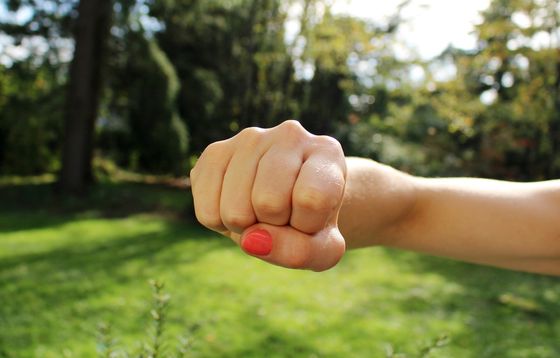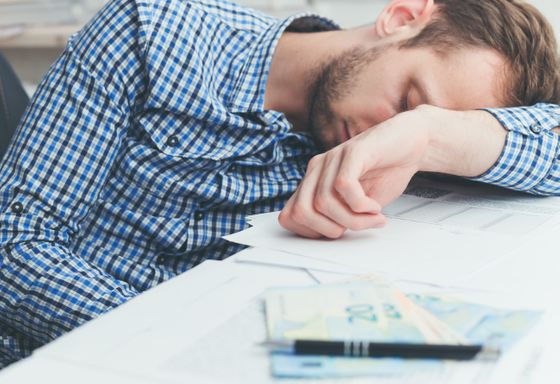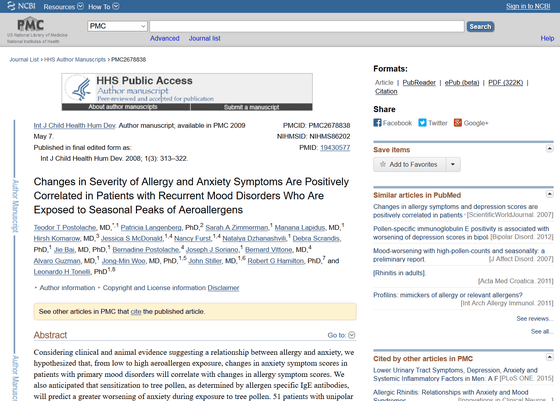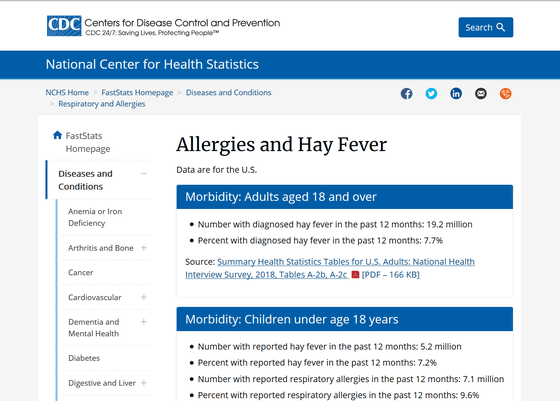Violent crime decreases during peak hay fever

By
According to the commentary on hay fever published by the Ministry of Health, Labor and Welfare , according to one recent survey, the prevalence of cedar pollinosis exceeds 20% nationwide, and many Japanese suffer from hay fever ( Rikan). As a good aspect of such hay fever, research results reported that “ violent crime decreases during peak hay fever ”.
More sneezing, less crime? Health shocks and the market for offenses-ScienceDirect
https://www.sciencedirect.com/science/article/abs/pii/S0167629618308221
Violent Crime Rates Go Down When Seasonal Allergies Peak in The US
https://www.sciencealert.com/a-strange-thing-happens-to-violent-crime-rates-when-the-pollen-count-gets-high
The results of this study were reported by a research team led by Aaron Chalfin, who is studying criminology at the University of Pennsylvania in the United States. The research team compared daily crime numbers and weather data in 17 American cities. As a result, the number of violent crimes decreased by about 4% on the day when the amount of pollen was particularly high.
According to the research team, the crime trend that seems to have been affected by pollen is that 'violent crimes by relatives that occur among partners and families have been greatly affected.' The violent crime by relatives seems to have decreased by 4.4% on the day when the amount of pollen is particularly high, and the decrease in violent crime by relatives has greatly contributed to the decrease in overall violent crime.

By
This study only found a correlation between the number of violent crimes and the amount of pollen scattered, not a cause-and-effect relationship. The research team interprets the causal relationship between the number of violent crimes and the amount of pollen scattered as 'because pollen affects physical condition'.
As an example of how pollen affects human behavior, the research team says, “We also found that the number of rental bicycle users decreased by 8% on days when the amount of pollen was particularly high.” “Pollen makes people tired. The mechanism we are discussing is that if people get tired and lethargic, they become less angry and the result is a reduction in violent crime,” says Monica Deza. Commented.

By
In addition, according to the research team, crimes that showed movement linked to an increase in the amount of pollen spray were limited to violent crimes. There seemed to be no effect on the crime rate for the purpose of money such as theft and robbery. About this result, the research team states that `` violent crime is impulsive and people's mood is greatly involved, but crimes for money require planning and are less affected by mood '' It is.
Another research on the argument that hay fever affects people has been published by a research team at the University of Maryland Medical School in the United States. There is something called.
Changes in Severity of Allergy and Anxiety Symptoms Are Positively Correlated in Patients with Recurrent Mood Disorders Who Are Exposed to Seasonal Peaks of Aeroallergens
https://www.ncbi.nlm.nih.gov/pmc/articles/PMC2678838/

According to statistics published by the
FastStats-Allergies and Hay Fever
https://www.cdc.gov/nchs/fastats/allergies.htm

Related Posts:
in Science, Posted by darkhorse_log







